How Line Editing Can Make Your Story Stronger – From a Line Editor
- RoseLark Publishing
- Mar 22, 2019
- 5 min read
Updated: Jul 26, 2023
Hi everyone! If you follow this blog and read our book reviews then you know a lot of times one of our big complaints is the story could use a better editor. We don’t often state what kind of editing is needed (unless it’s a proofreader/copy editor), but a lot of the time what’s needed is a line edit.
So what is a line edit?
A line edit is where an editor (or an author if they aren’t too close to the writing) goes through the text with a fine tooth comb looking for things that bog the text down. Things like repetitive phrasing, weak verbs/words, similar sentence structure. Line edits look for overused words, clichés, and telling vs. showing.
A line edit is not a content edit. It is not a developmental edit. It is not a sensitivity edit. It’s not a proofread/copy edit.
Its purpose is to make your prose stronger. More interesting. While leaving the core plots, words, and ideas.
So how does it work?
Well… I’m going to show you using a U.S.A. Today Bestselling author’s opening 300 words. This is not my writing. I am using a very small sample as an example for educational purposes.
Now that the fair use jargon is out of the way. Here we go.
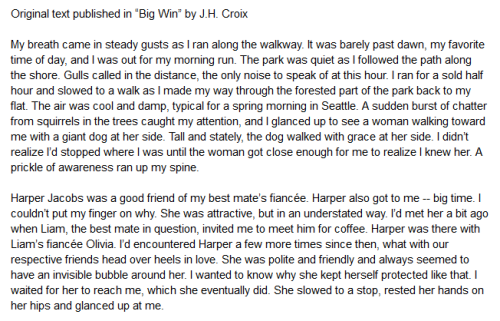
—-
I happened across this while trying to find something to read. I didn’t like the opening, and I couldn’t figure out why. So I took off my reader’s hat, put on my editor’s hat, fired up google docs, and got to work.

When I was done, I had a document that looked something like this:
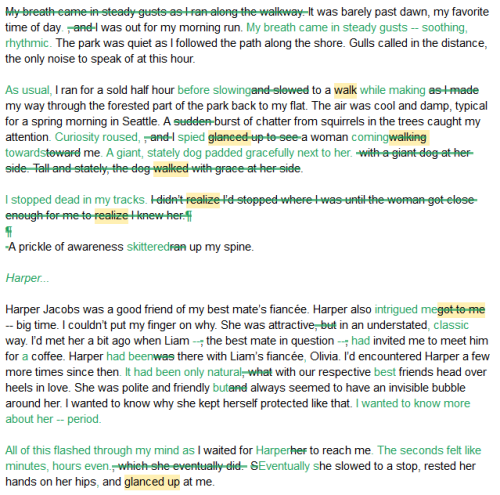
Let’s break this down. (You also get to see my fandom name, which I am very open about so if you like reading Hunger Games AUs or Soulmates stuff or a diary fic where Tom Riddle gives Ginny Weasley the facts of life you can hunt me down!)
First Paragraph:

The opening starts in the wrong place and doesn’t flow smoothly. And I noticed pretty early on that this author (assuming it isn’t a ghostwriter which is possible considering the author’s release schedule of 10+ books a year) has very repetitive phrasing.
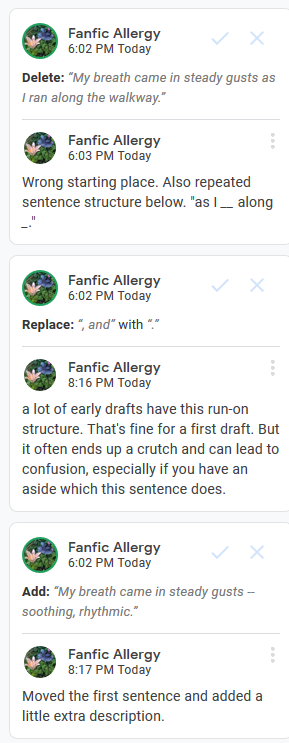
Now onto the second paragraph of my edit.
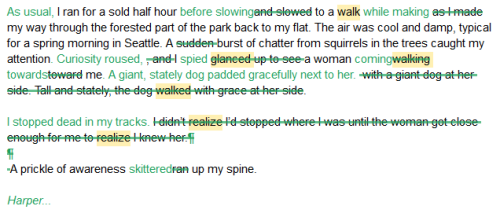
One of the first things I noticed were the weak verbs. The repeated “Walk” permutations. And, of course, the similar sentence structure. I also wanted to break it up. Add some drama. Heighten the tension. And you can do that with short paragraphs and even one sentence paragraphs. Here are my edits and rationales.
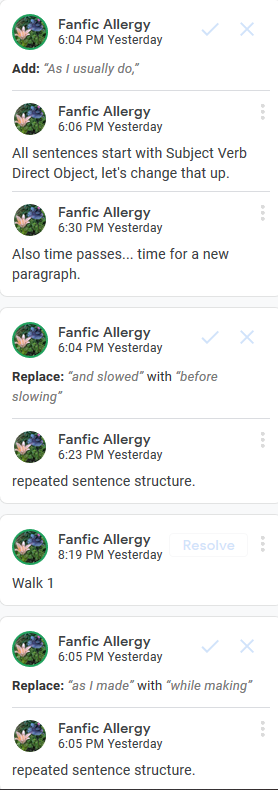
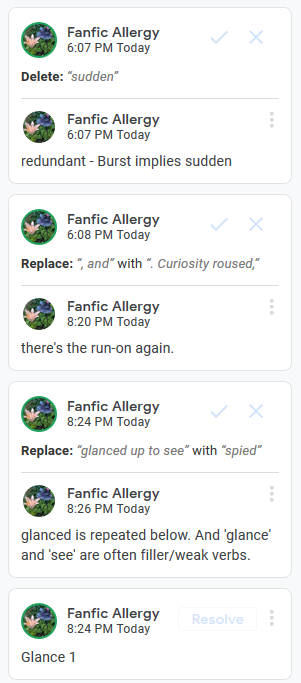
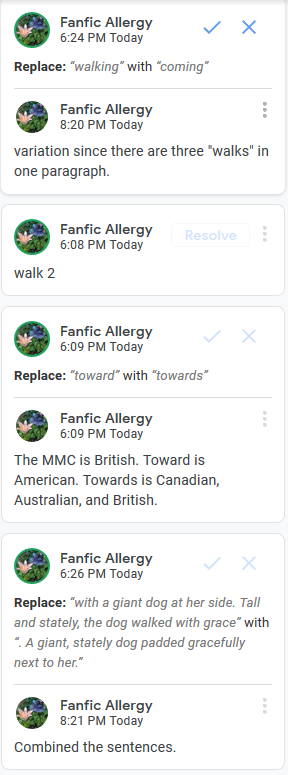
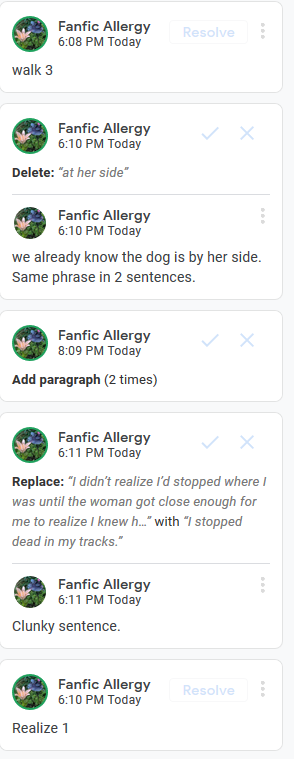
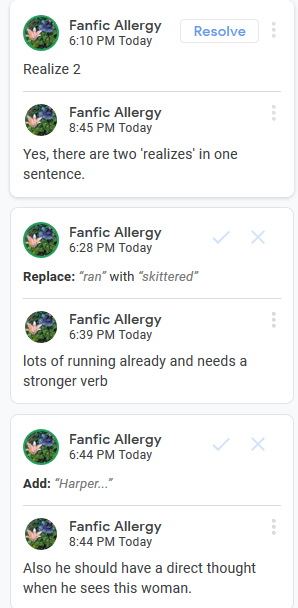
All of that I parsed from the original first paragraph. The words are still mostly Croix’s (or her ghostwriter’s), I just moved a few around, tightened a few verbs, and got rid of what looked like unintentional repetition.
Now we’re onto the original second paragraph which has a lot going on with it. Like the original first paragraph, the second needs a lot of work to make it flow nicely. (It also needed a proofreader, but we’ll get to that.)
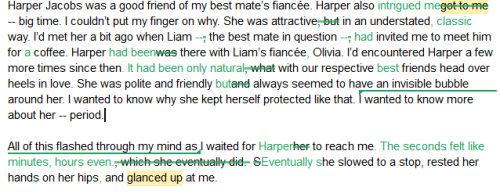
It may not look like I changed much, but what I did change mattered.
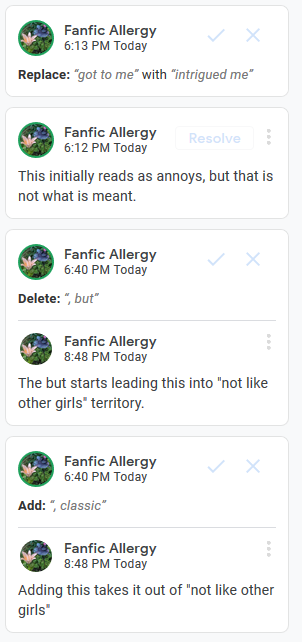
The last two edits are technically a sensitivity edit, but it’s a very minor one. It’s more about making Harper a little more real.
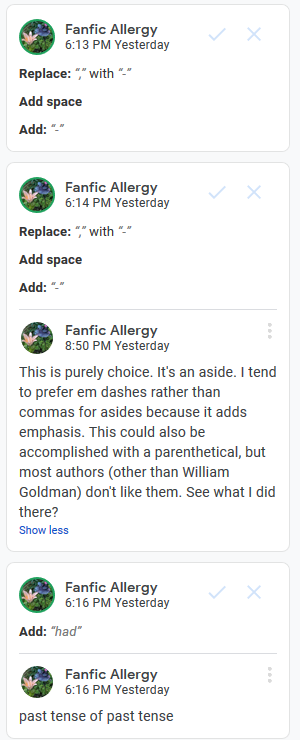
The last tells me this wasn’t proofread. There’s more wrong tenses in this.
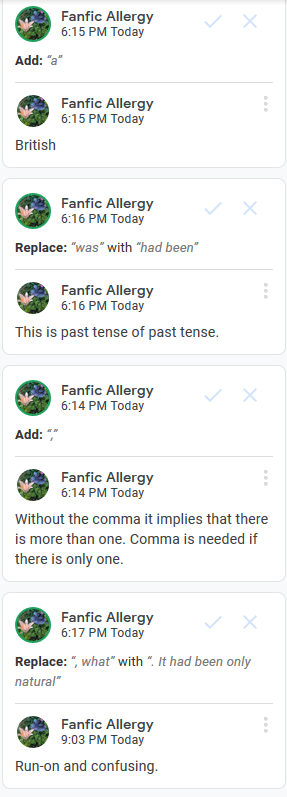
And there’s two more grammar errors and another mistake that tells me that the person writing this wasn’t British and didn’t use a Brit-picker. When editing, any editor worth their salt will ask you what vernacular you’re going for. While technically not part of a line edit, most line editors will point this kind of thing out. And this is where I get annoyed – if fanfic authors (particularly in the Harry Potter fandom) who write for fun are expected to have Brit-pickers (and vice versa) the same should be expected for published works. *gets off the soapbox*
On to the why I stopped for a grammar lesson about commas… Basically if there is only one of something be it a book, a brother, or a fiancée as is the case here, commas need to be used to set them off because it is considered non-essential information. There’s a really good guide HERE that explains why - just jump to rule 6.
Continuing with this paragraph.
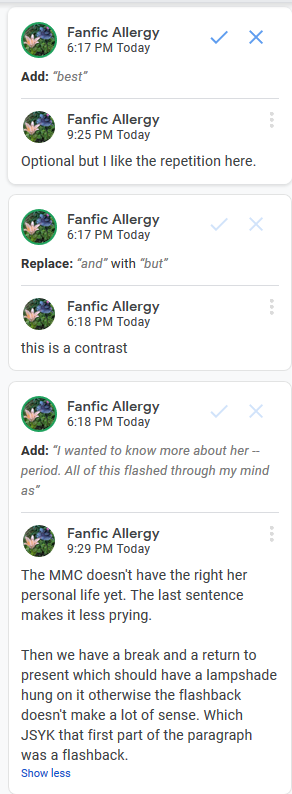
I want to point out, the way this author did the flashback wasn’t bad. It just needed to be set off more and put in the right tense. People do have flashbacks. This is how you do them.
To finish up we have this.
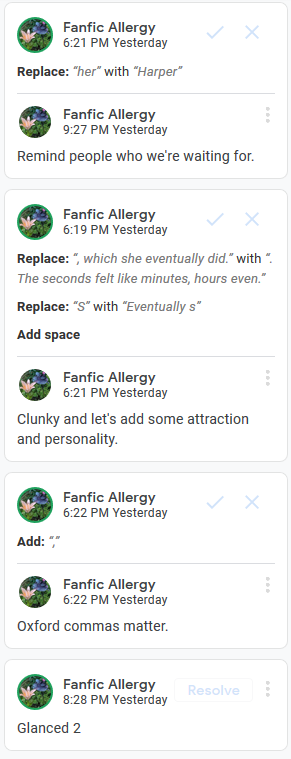
That’s the first 300 words of J.H. Croix’s Big Win.
So what does the finished line edit look like?
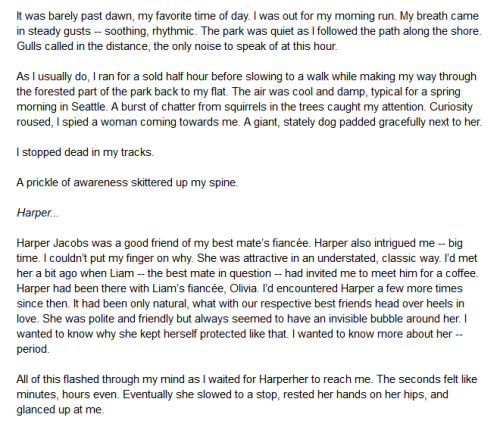
I think it’s tighter. More dramatic and a better hook. The words are still mostly Croix’s (or her ghostwriter, I’m not judging) but they’re now stronger. I took out the unintentional repetition. I hit a few grammar problem spots (right now this book would be heading toward losing a star for the grammar errors alone).
It may look like I rewrote the thing, but I didn’t. I used what was there. These aren’t my words. Sure I added a sentence here and there, but mostly for clarification or to combine two clunky sentences into one.
Also with line edits, most of the suggestions are just that – suggestions. It’s an opinion. If the author decided that they liked the wall of text and subject-verb-direct object sentence structure, then that’s okay. They don’t have to take the changes. However, what is important is that the author looks at them. Thinks about them. In many cases a line edit can help pinpoint what I call ‘crutches.’ Every writer, EVERY SINGLE WRITER, has a go-to sentence structure. Every single writer has a favorite rule they like to break. Every single writer has words they default to or use as filler. And most writers don’t have the distance to see these things.
That’s why you need a line editor. It’s a huge eye-opener. Even I, a line editor, still get line edits done for my work.
Also a few final notes: you’ll notice I did some proofreading and sensitivity editing in my line edit. That’s because I tend to see them as going hand-in-hand. They don’t always, and it can vary from editor to editor. Line editing is also more in-depth than proofreading for most editors so will take longer. A good rule of thumb is that a professional editor can edit approximately 6 pages an hour for copy editing or 1500 words/hour. Content editing tends to be 1-3 pages an hour or about 500 words/hour. This will also vary from editor to editor. Here’s a good guide… no matter what do not expect someone to be able to turn around a 50,000 word manuscript in a week -- that may be approximately 34 hours of work, but most editors have other jobs, other clients, and may need to pause to research something… especially if your editor is fact-checking or rooting out anachronisms (which we do in the line edit phase).
No matter what, you should always have another set of eyes do one last proofread/copy edit after you do a line edit. And it shouldn’t be your line editor. They’re too close to the text, and it’s not their job to go that granular.
I hope that helps!
Later!
–Lark/FanficAllergy/One Half of Christina Rose Andrews


Comentarios